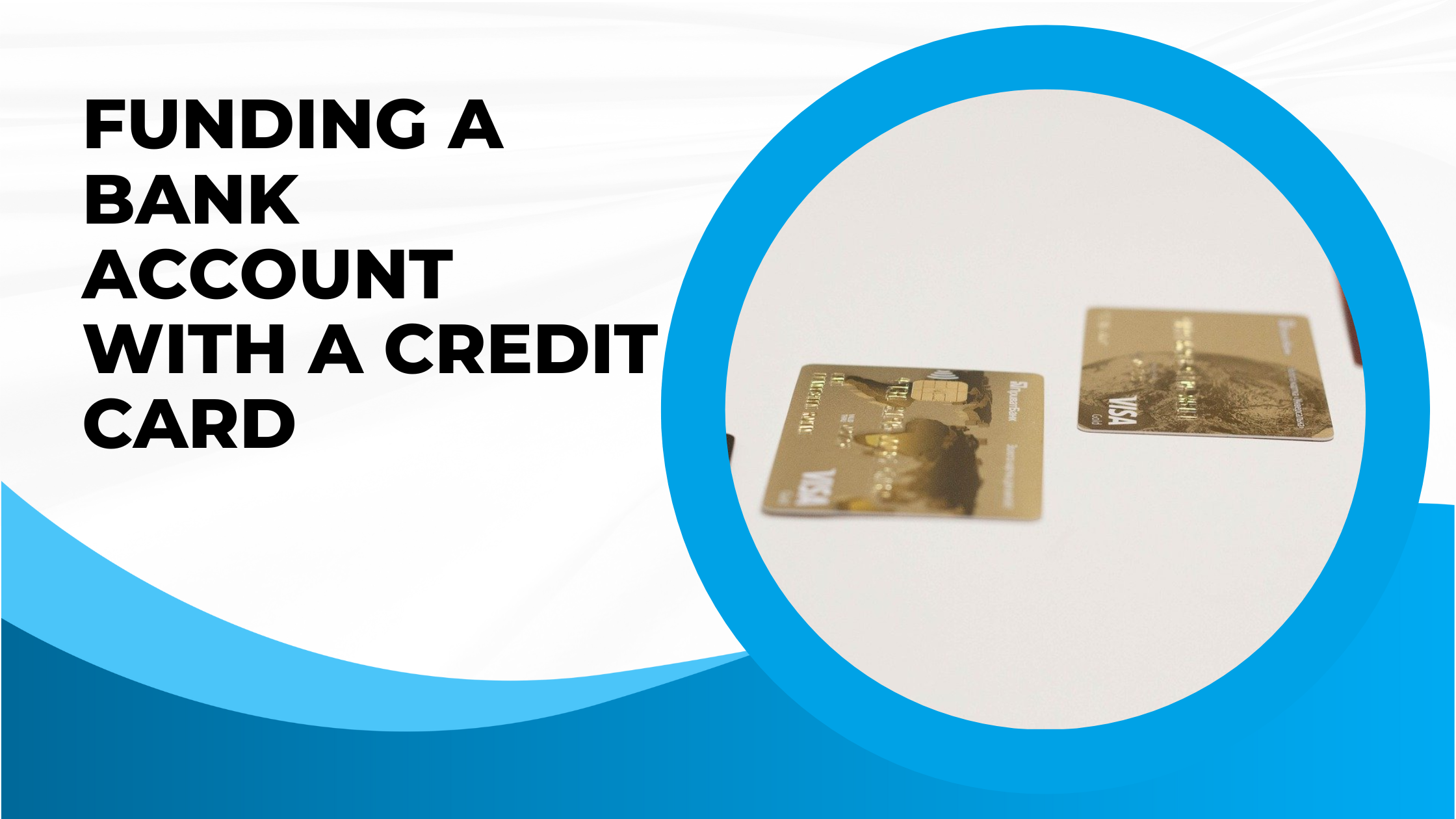Table of Contents
ToggleCan you use your credit card to fund your bank account?
Maybe you want to put away a small nest egg in a savings account but have found the process of saving difficult.
Maybe you are the kind of person who finds it easier to pay your credit card bills than save money. In this case, bank accounts that can be funded with a credit card might be your best option.
Some Banks Allow Credit Card Funding
Many banks allow new clients to fund their new savings and checking accounts with credit cards. There are different reasons why a financial institution offers bank accounts that can be funded with a credit card when opening.
Some of those reasons include the following:
- To help new clients meet the minimum opening deposit for the new savings or checking account
- To help new clients meet the minimum deposit required for new savings or checking accounts and help them earn rewards on the credit card.
- To help clients with their credit card spending to meet new credit card requirements for a sign-up bonus.
If you are a credit cardholder, review your agreement with your issuer to see if the card company considers credit card funding a cash advance.
A credit card company might charge interest on borrowed funds while considering the type of transaction. This means that the interest rate charged on purchases will be lower than the rate charged on cash advances and balance transfers.
Tips for Funding with a Credit Card
There are a few things you need to know before you decide to use your credit card to fund your bank account.
Here are a few tips that will go a long way in the process:
- Before you open your bank account, make sure you call customer service to set the cash advance limit on your credit card as $0 to avoid the cash advance fee.
- Fund your bank account with a Visa or a MasterCard credit card rather than the American Express card. In most cases, American Express cards do not work for this action.
- If you use Citi cards, ensure they do not classify the transaction as a cash advance.
Can You Fund a Savings Account with a Credit Card?
The simple answer here is yes!
Let’s face it, some of us aren’t that good at saving money. However, we could be very good at paying our credit card bills and maintaining a high credit score.
If this sounds like you, one of the best financial moves you can make is to fund your savings account using your credit card. This way, you will still have some of the money you pay back on your monthly credit bill.
When you open a savings account with some of the banks, they have the option of funding your opening deposit from your credit card.
- You can fund your savings account between $100 to $2000, depending on the bank.
- As mentioned earlier, do not use a Citi card because it will be reported as a cash advance. This means the deposit made will accrue interest immediately.
- Remember that most of the accounts will expect you to keep a minimum balance to not incur any additional fees.

List of Banks that allow you to open a savings account with a credit card:
- Bank of Maine (maximum $500)
- BMO Harris (maximum $1,000)
- Citizens Bank (maximum $1,000)
- First-Citizens (maximum $1,000)
- First Niagara (maximum $1,000, and only uses Visa or MasterCard)
- KeyBank (maximum $100)
- Northwest Savings Bank (maximum $100)
- Oceanside Christopher Catholic Union (maximum $100)
- PNC (maximum $2,000, and you can only use Visa or MasterCard)
- Santander (up to $500)
- Wells Fargo (up to $500)
Opening multiple accounts is probably not an efficient method because of all the tracking and upkeep. However, it is an option if you can’t manage to spend the minimum amounts on your credit cards.
What Are the Drawbacks of Using a Credit Card to Open a Bank Account?
As with anything, some drawbacks come with this method of opening bank accounts:
- There are banks such as First-Citizens that check your credit history when you start up a new account. This means that opening a bank account with a credit card could negatively impact your credit rating.
- Some bank accounts have a monthly fee or require you to keep your account active for a specified period. It might not be worth the monthly charges to accumulate a few points or extra miles in the long run. However, it could be a good idea if opening a bank account is the only way you can reach your minimum spending requirement.
Before opening your bank account with your credit card, ensure you have exhausted all other ways to help you meet your credit card’s minimum spending requirement.
Can You Fund Your Bank Account Without Credit Card Charges?
Funding your bank account with your credit card will incur some charges. In many cases, these charges come in the form of interest.
However, some credit cards allow you to transfer money to your bank account at a 0% interest charge, provided you cover the transfer fees. This typically means that the longer the period you want to transfer money from your credit card to your bank account, the higher the transfer fees.
For example, if you are looking to borrow money from your credit card and transfer it to your bank account (say, your savings account) for 12 months, you will probably incur a transfer fee of about 3% of the amount being transferred.
Factors to Consider When Transferring Money from Your Credit Card to Your Bank Account
Your bank could offer you a variety of ways to fund your bank accounts with a credit card. Depending on your specific bank account, the avenues available to you may not only include hefty fees, but they can be complicated as well.
For example:
- The Bank of America allows you to set up money transfers from your credit card to your bank account as a direct deposit
- Citizens Banks allows you to charge the initial deposit on your credit card
- The other option is to take the credit card to the bank and have the teller manually process the money transfer
These major factors come into play when transferring money from your credit card to your bank account.
Let’s take a closer look at some other factors that could make a difference in your finances:

Purchase vs. Cash Advance
In some cases, banks and credit card providers choose to treat these money transfers as purchases. Then you won’t have to worry about hefty transfer fees.
If your credit card issuer or bank treats these transfers as cash advances, you will incur major fees. In many cases, the fees fall between 3 and 5% of the total of each transaction.
What Does the Fine Print Say?
One of the main reasons you must be very careful when reading the fine print on both ends (bank and credit card) is that these processes typically come with some “hidden” charges.
These charges aren’t often hidden as much as they aren’t read. Sometimes, these fees can be avoided by simply following instructions from the credit card provider or the bank.
Whether or Not Your Bank Account Can Be Funded Using a Credit Card
Unfortunately, some banks simply don’t have this option as part of their services. In this case, you can either move banks or decide to make cash withdrawals if your credit card allows it. This is an option that is far more expensive.
When it comes to funding your bank account with your credit card, the trick is to find the right combination:
- A bank that allows you to fund your accounts using your credit card
- A credit card provider that allows for this kind of process
Finally, this combination has to be affordable, easy to execute, and something that you can set up to be automated. This is especially true if you plan to fund your savings account using your credit card regularly.

